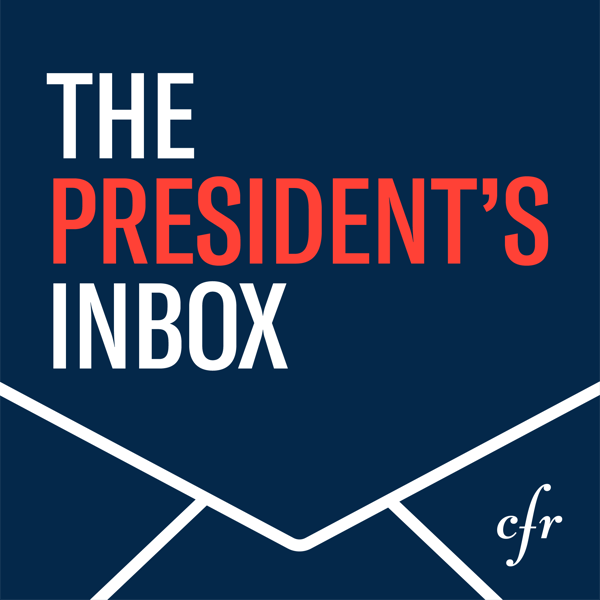The Fourth of July, With Jack Rakove
The President’s Inbox
Council on Foreign Relations
4.5 • 698 Ratings
🗓️ 4 July 2023
⏱️ 33 minutes
🧾️ Download transcript
Summary
Transcript
Click on a timestamp to play from that location
| 0:00.0 | Welcome to the President's Inbox, a CFR podcast about the foreign policy challenges facing the United States. |
| 0:10.0 | I'm Jim Lindsay, Director of Studies at the Council on Foreign Relations. |
| 0:14.0 | This week's topic is the 4th of July. |
| 0:29.6 | With me to discuss why the United States declared independent in 1776, in its meaning for today, is Jack Rakoff. Jack is the William Robertson co-profess of History and American Studies and Professor of Political Science and Law Emeritus at Stanford University. |
| 0:40.3 | He has written extensively on the origins of the American Revolution and Constitution. |
| 0:46.3 | He is the author of six books, including original meanings, politics and ideas in the making of the Constitution, which won the Pulitzer Prize in |
| 0:56.7 | history. He's also the author of Revolutionaries, a new history of the invention of America, |
| 1:03.9 | which was a finalist for the George Washington Prize. Jack, thank you very much for joining me. |
| 1:09.6 | Well, it's great to be here. Jack, this is a podcast |
| 1:12.5 | where you normally talk about foreign policy, what's happening in China, Ukraine war, climate |
| 1:18.4 | change, and things like that. But today I want to talk about the 4th of July for two reasons. |
| 1:24.7 | One, this episode is going to debut on the Fourth of July, but also because |
| 1:30.0 | of the idea of the Fourth of July, the sentiments expressed in the Declaration of Independence |
| 1:35.8 | in some way sort of form a core foundation of the United States, and it's a big part of America's |
| 1:43.8 | appeal abroad. |
| 1:46.0 | So I'd like to talk a little bit about how the United States ended up in a revolution throwing off British rule. |
| 1:54.0 | And from your perspective, was the revolution something that was inevitable? |
| 1:58.0 | If it didn't happen in 1776, it would have happened in 1792 or 1817? |
| 2:05.4 | I feel very strongly that the revolution was not inevitable and that its origins really spring out of a series of decisions |
| 2:13.2 | and particular events that took place, really not going back to the 1760s, really in 1773, 1774. |
| 2:22.4 | I think the real pivot and the kind of dynamic force that led the British government to make the |
| 2:28.0 | mistakes it made had to do very much with events in Massachusetts in general and in particular |
... |
Please login to see the full transcript.
Disclaimer: The podcast and artwork embedded on this page are from Council on Foreign Relations, and are the property of its owner and not affiliated with or endorsed by Tapesearch.
Generated transcripts are the property of Council on Foreign Relations and are distributed freely under the Fair Use doctrine. Transcripts generated by Tapesearch are not guaranteed to be accurate.
Copyright © Tapesearch 2025.

